Subscribe to receive updates on our products, special offers, and other discount information.
Dinacharya
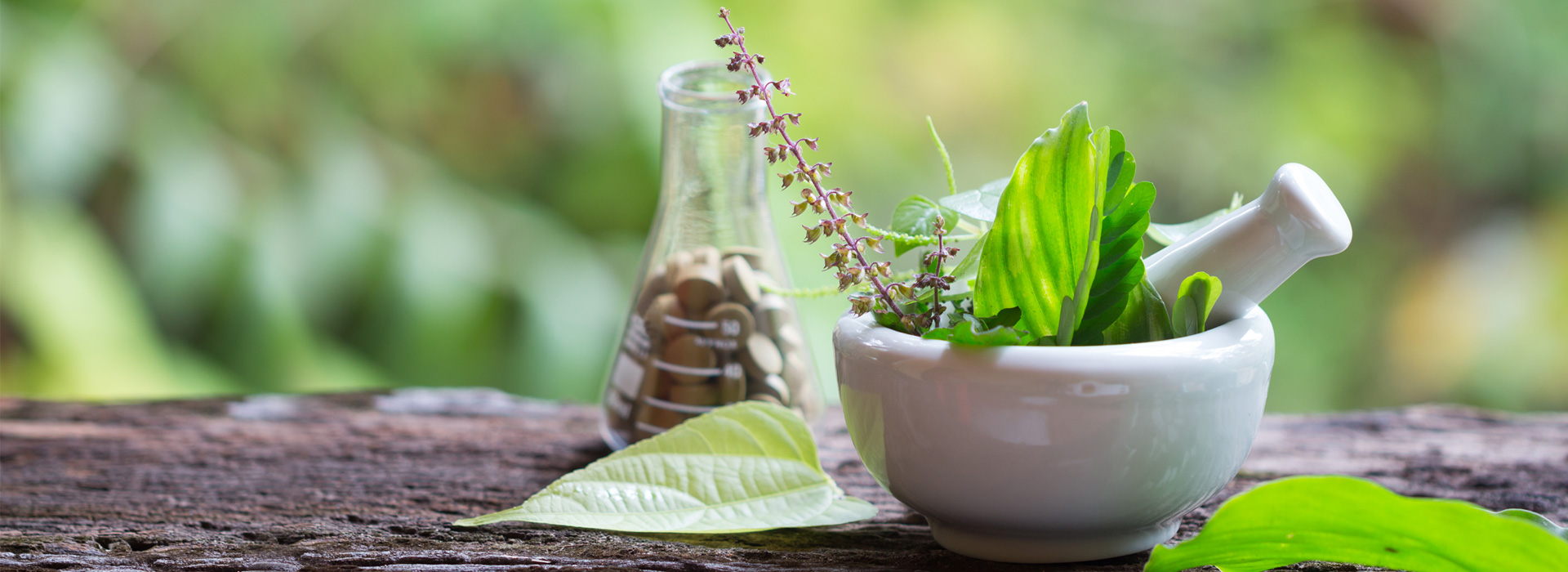
Authors: Leena Pandya, ND and Meera Patel, AP
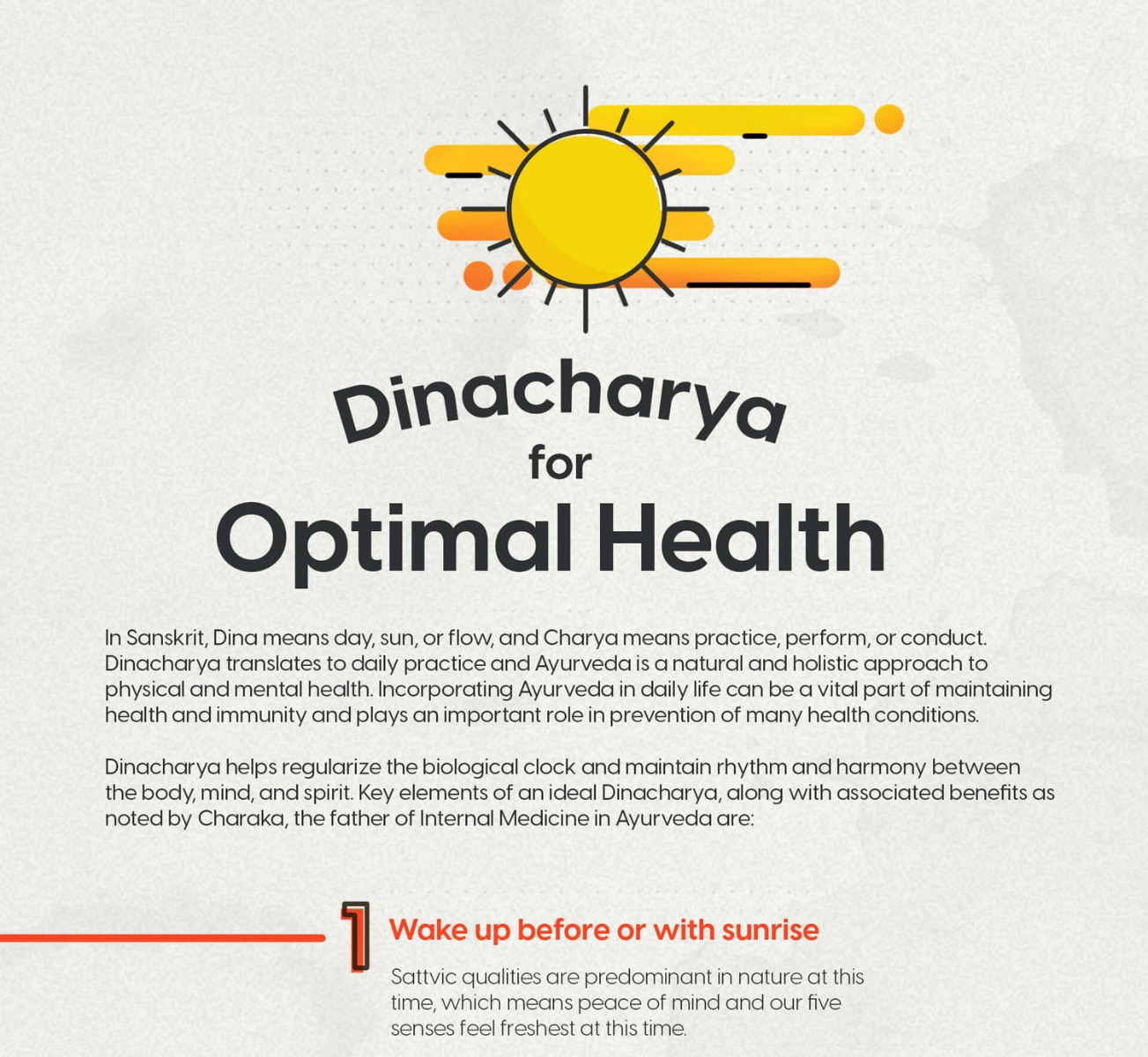

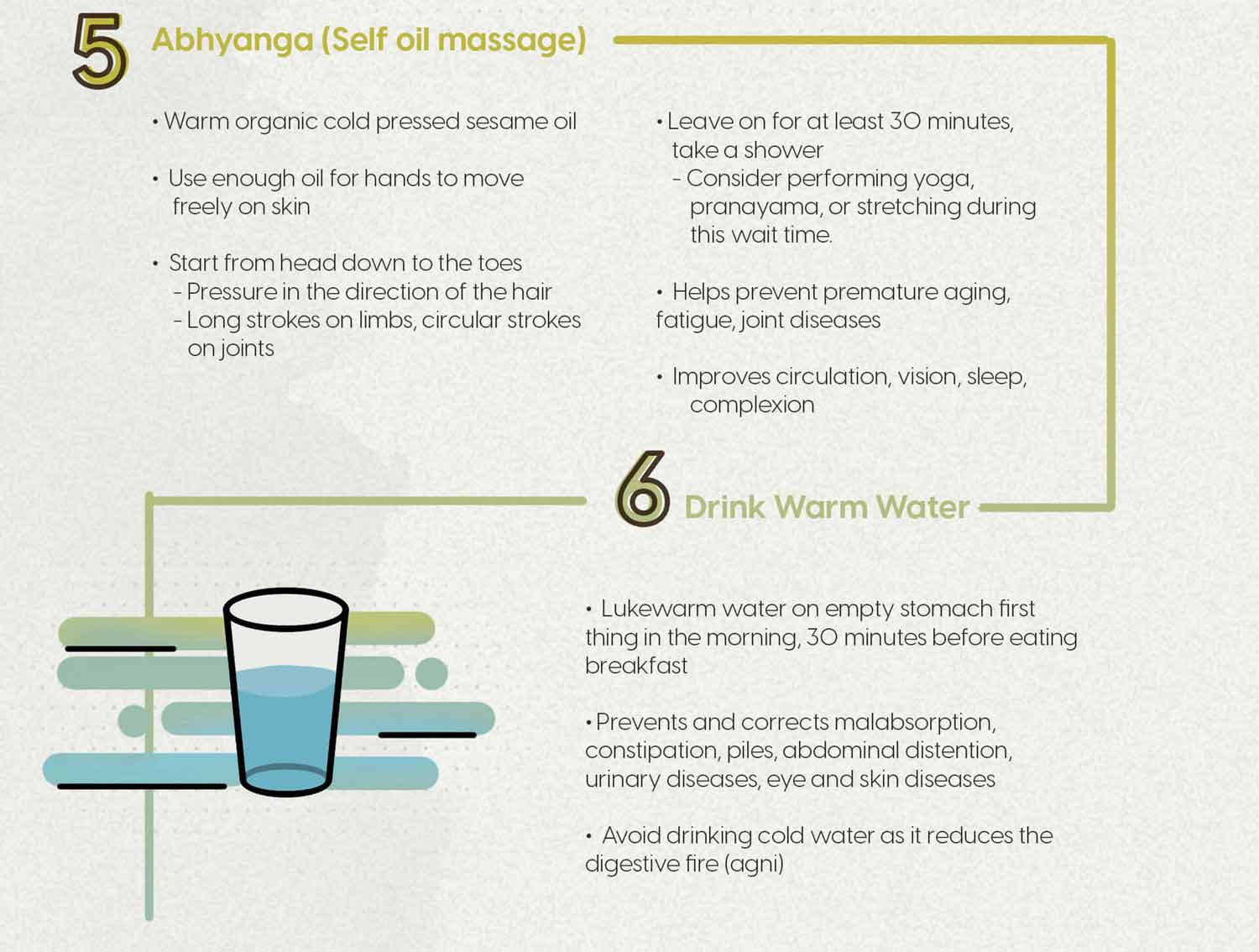
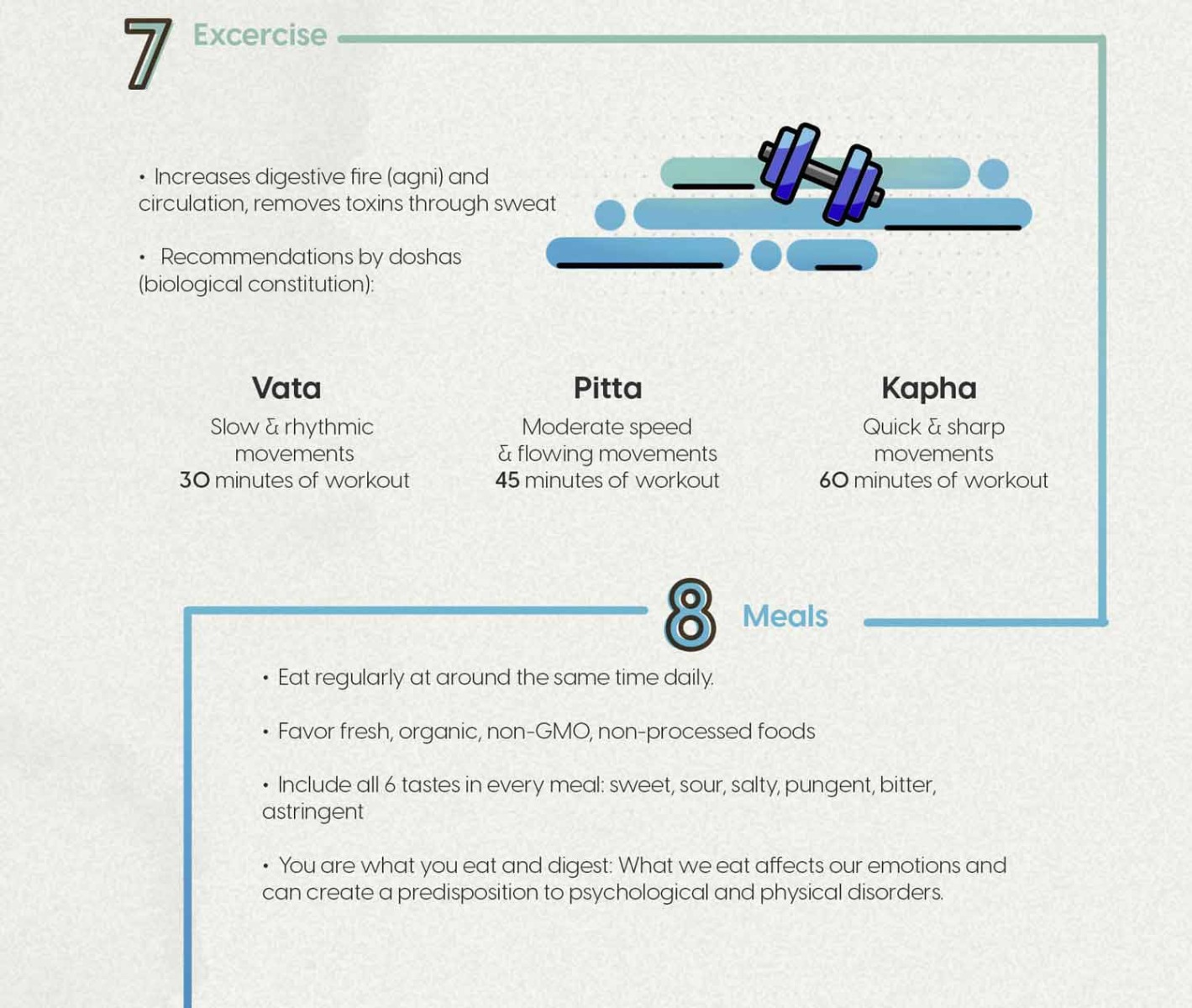
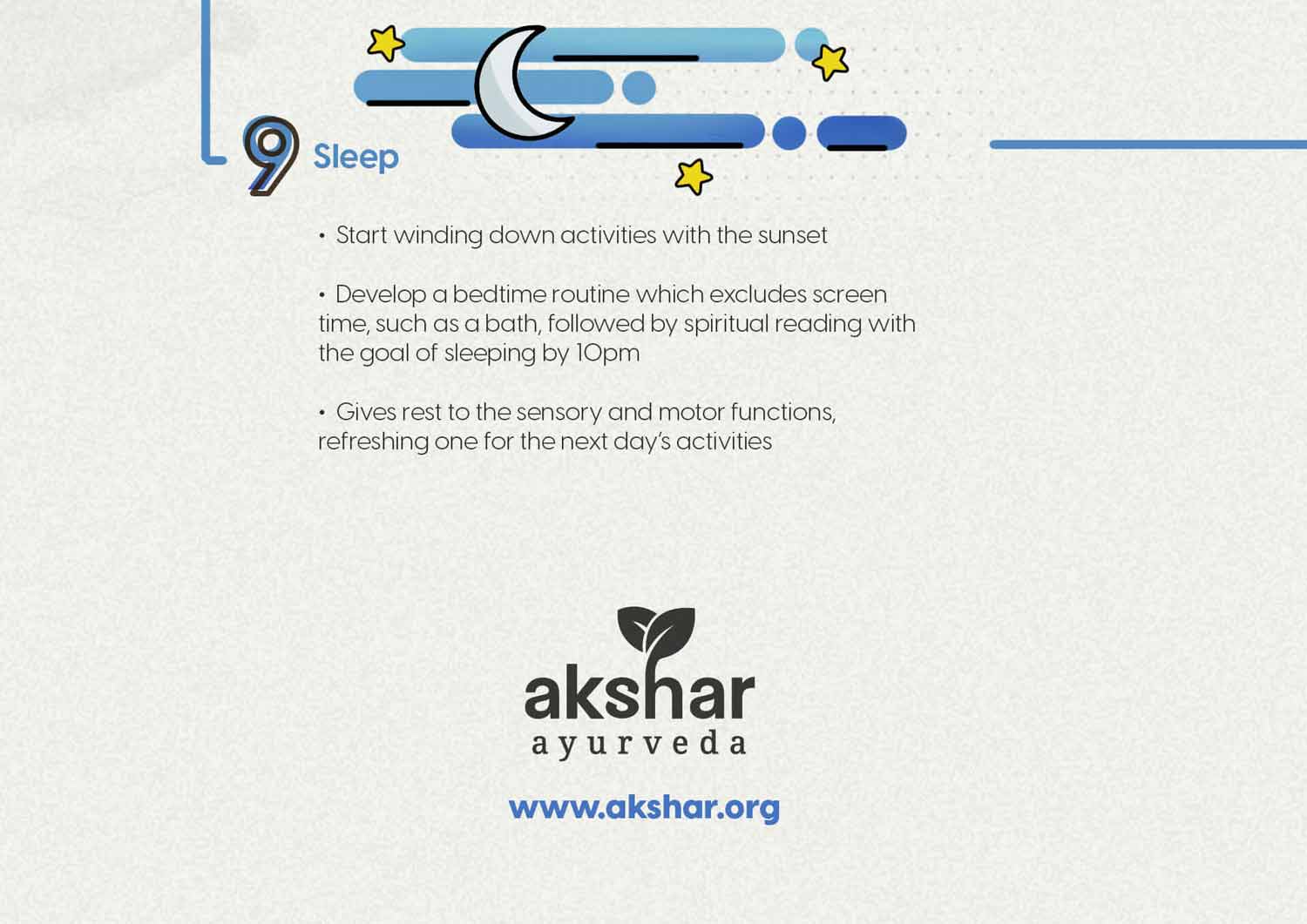
In Sanskrit, Dina means day, sun, or flow, and Charya means practice, perform, or conduct. Dinacharya translates to daily practice and Ayurveda is a natural and holistic approach to physical and mental health. Incorporating Ayurveda in daily life can be a vital part of maintaining health and immunity and plays an important role in prevention of many health conditions.
Dinacharya helps regularize the biological clock and maintain rhythm and harmony between the body, mind, and spirit. Key elements of an ideal Dinacharya, along with associated benefits as noted by Charaka, the father of Internal Medicine in Ayurveda are:
- Wake up before or with sunrise
- Sattvic qualities are predominant in nature at this time, which means peace of mind and our five senses feel freshest at this time.
- Say a prayer or express gratitude to Mother Earth, and set your intention for the day
- Serves as a reminder of one’s purpose and goals in life which helps focus efforts to achieve them
- Answer nature’s call
- Regular, complete, non-strenuous bowel movements are a sign of good digestion, absorption, and assimilation.
- Oral hygiene
A routine part of an Ayurveda consultation is an examination of the tongue and oral cavity, as it is quite telling of the state of one’s health. While there are many preventative oral care measures, here are just a few: - Herbal mouthwash
- Mix some hot water with Triphala to make a tea, and fill your mouth up to ¾ full and swish 1-2 minutes before expelling.
- Numerous controlled clinical trials have shown that Triphala significantly reduces the abundance of oral bacteria, dental plaque, and gingivitis.
- Oil pulling
- Swish 2 teaspoons of warm sesame oil in the mouth for 2-5 minutes before expelling.
- Massage gums with fingers.
- Strengthens jaw muscles, encourages vibrant voice, prevents wrinkles on cheeks, improves sense of taste, prevents cracking of lips
- Tongue cleaning
- Scrape tongue from base to tip to help prevent diseases of oral cavity, improve sensation of taste, remove debris, prevent bad odor, clear toxins and stimulate the digestive tract
- Abhyanga (Self oil massage)
- Warm organic cold pressed sesame oil
- Use enough oil for hands to move freely on skin
- Start from head down to the toes
- Pressure in the direction of the hair
- Long strokes on limbs, circular strokes on joints
- Leave on for at least 30 minutes, take a shower
- Consider performing yoga, pranayama, or stretching during this wait time
- Helps prevent premature aging , fatigue, joint diseases
- Improves circulation, vision, sleep, complexion
- Drink warm water
- Lukewarm water on empty stomach in the morning, 30 minutes before eating breakfast
- Prevents and corrects malabsorption, constipation, piles, abdominal distention, urinary diseases, eye and skin diseases
- Avoid drinking cold water as it reduces the digestive fire (agni)
- Exercise
- Recommendations by doshas (biological constitution):
- Vata: slow & rhythmic movements - 30 minutes of workout
- Pitta: moderate speed & flowing movements - 45 minutes of workout
- Kapha: quick & sharp movements - 60 minutes of workout
- Increases digestive fire (agni) and circulation, removes toxins through sweat
- Meals
- Eat regularly at around the same time daily
- Favor fresh, organic, non-GMO, non-processed foods
- Include all 6 tastes in every meal: sweet, sour, salty, pungent, bitter, astringent
- You are what you eat and digest: What we eat affects our emotions and can create a predisposition to psychological and physical disorders.
- Sleep
- Start winding down activities with the sunset
- Develop a bedtime routine which excludes screen time, such as a bath, followed by spiritual reading with the goal of sleeping by 10pm
- Gives rest to the sensory and motor functions, refreshing one for the next day’s activities
